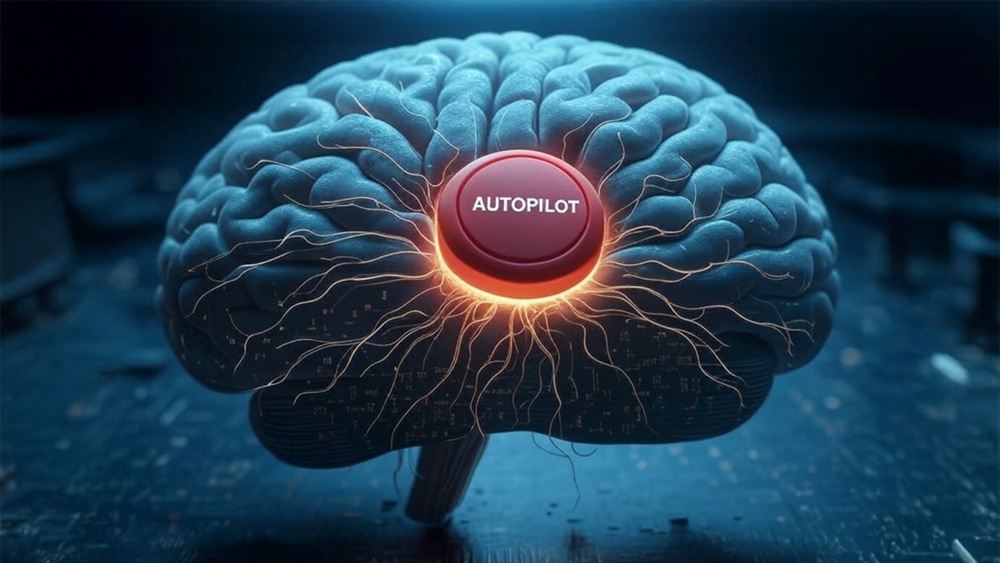Most people treat their mindset like the weather – something that happens to them rather than something they control. But here’s the truth: your mind determines everything. How you show up at work. How you handle stress. How others perceive you. How you perform when it matters most.
Whether you’re closing million-dollar deals in a boardroom or leading wildlife tours through the African bush, the quality of your thinking shapes every outcome. Your external circumstances might differ, but the internal game remains the same.
Why Mindset Isn’t Just “Positive Thinking” BS
Let’s address the elephant in the room. Mindset work isn’t about plastering on a fake smile and pretending everything’s fine. It’s about developing the mental tools that allow you to function at your peak, regardless of what life throws at you.
Think of your mindset as your mental operating system. Most people are running on outdated software, wondering why they keep crashing under pressure. Meanwhile, those who invest in upgrading their mental OS consistently outperform their competition—not because they’re more talented, but because they think better.
The Four Pillars That Build Unshakeable Performance
Every high performer, from elite athletes to successful entrepreneurs, shares certain mental characteristics. These aren’t personality traits you’re born with—they’re skills you can develop.
Resilience: Your Mental Shock Absorber
Resilience isn’t about being tough or emotionless. It’s your ability to absorb setbacks without breaking your stride. When you develop true resilience, failure becomes feedback. Criticism becomes data. Setbacks become setups for comebacks.
Most people treat resilience like a muscle that either exists or doesn’t. Wrong. Resilience is built through deliberate practice—gradually exposing yourself to controlled discomfort and teaching your mind that you can handle more than you think.
Agency: Taking the Driver’s Seat
Agency is the antidote to victimhood. It’s recognizing that while you can’t control what happens to you, you always control your response. People with strong agency don’t waste energy complaining about circumstances they can’t change. They focus their energy on what they can influence.
This shift from reactive to proactive thinking changes everything. Instead of asking “Why is this happening to me?” you start asking “How can I use this?” That’s the difference between being at the mercy of your circumstances and being the architect of your outcomes.
Gratitude: The Reality Check Your Brain Needs
Your brain has a negativity bias—it’s wired to spot problems, not possibilities. Gratitude rewires this default setting. But we’re not talking about forced positivity or pretending problems don’t exist.
Strategic gratitude means actively noticing what’s working while acknowledging what needs improvement. This balanced perspective prevents you from getting stuck in either denial or despair. You see challenges clearly while maintaining the mental energy to tackle them.
Positivity: Your Strategic Advantage
Real positivity isn’t naive optimism. It’s the strategic choice to focus on solutions rather than dwelling on problems. Positive thinking doesn’t ignore reality—it approaches reality with the assumption that there’s always a way forward.
When you maintain a positive mindset, you make better decisions, build stronger relationships, and inspire more confidence in others. People gravitate toward those who radiate possibility rather than pessimism.
The Universal Application: From Boardroom to Bedroom
Here’s what most people miss: mindset isn’t just for work or sports. Your thinking patterns show up everywhere.
In relationships, your mindset determines whether you approach conflicts as battles to win or problems to solve together. In health, it influences whether you see exercise as punishment or investment. In your career, it shapes whether you view challenges as threats or opportunities to grow.
The CEO and the safari guide face different external challenges, but they both need the same mental skills: the ability to stay calm under pressure, communicate clearly, adapt to unexpected situations, and maintain confidence when things go wrong.
The Performance Connection
Performance isn’t just about having the right skills—it’s about accessing those skills when they matter most. Your mindset acts as the bridge between your potential and your actual results.
When your mind is operating at its peak, you enter what psychologists call “flow state”—that zone where time disappears, distractions fade, and you perform at your absolute best. This isn’t accident or luck. It’s the natural result of proper mental conditioning.
Stop Making Excuses, Start Making Changes
The hard truth? Most people know what they need to do—they just don’t do it consistently. They blame their circumstances, their genetics, their past, or their current situation. But high performers have the same 24 hours, face similar stresses, and deal with their own challenges.
The difference isn’t circumstance.
It’s mindset.
Your mind will either be your greatest asset or your biggest limitation. You get to choose which. But here’s the catch: not choosing is still a choice. Every day you don’t work on your mindset is another day you’re leaving potential on the table.
The question isn’t whether mindset matters—the question is whether you’re ready to stop letting yours run on autopilot. Because while you’re debating whether this stuff works, someone else with the same opportunities and less talent is already pulling ahead of you.
They’re not waiting for permission, perfect conditions, or the right moment.
They’re building the mental operating system that will carry them through any challenge.
The only question left is: when will you?
Ready to stop talking about change and start experiencing it? The first step isn’t what you think – it’s getting clear on where you are now versus where you want to be. Sometimes an outside perspective is exactly what’s needed to bridge that gap. Get in touch!
Stay safe.
And don’t forget to be awesome.







